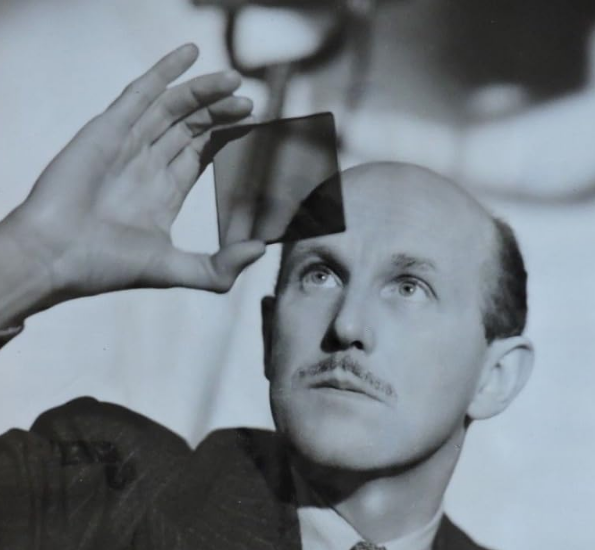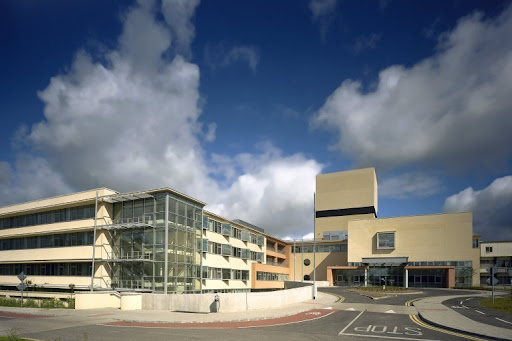How Lambay Island influenced one of cinema’s greatest directors
Mike Finnerty 16 Jan 2024
Britain has produced more than their fair share of directors over the years, from Lean to Nolan, Hitchcock to McQueen, but among certain cinephiles it is the films of Michael Powell and Emeric Pressburger that stand out from the crowd.
Known as The Archers, the team-up of the Kent man and the Hungarian refugee created some of the greatest films in cinema history, with films such as A Matter Of Life and Death, The Red Shoes, and The Life And Death Of Colonel Blimp on their CV.
Sandwiched between A Matter Of Life and Death and The Red Shoes is the psychological thriller Black Narcissus.
The 1947 thriller tells the story of Anglican nuns attempting to establish a school in the Himalayas and was recently shown in cinemas across Dublin as part of a push by the British Film Institute to introduce the films to a new generation of film fans.
Black Narcissus in particular benefits from a gorgeous 4K resolution, with rich, vivid colours leaping off the screen and looking like it could have been made yesterday.
The film took home two Oscars that year for cinematography and art direction.
While the film is often regarded as one of The Archers’ finest moments, what is little known is Michael Powell refined the screenplay for the film while staying on an island in Dublin Bay.
In the Powell/Pressburger relationship, it is generally accepted that Powell was the one who did the lion’s share of directing, helped tease great performances out of the actors and handled the look of the film, while Pressburger focused on the writing, editing and producing side of things.
The Archers’ films had the distinct credit of being written, produced and directed by Michael Powell and Emeric Pressburger, and in the case of Black Narcissus, we can thank the Irish Sea air for helping solidify one of the duos’ most lasting films.
Fans of The Archers know that duo had form with Celtic islands, with the 1945 comedy I Know Where I’m Going! famously taking place on a remote Scottish island, and it was shortly after the release of that film that Powell got to work on the screenplay for Black Narcissus.
In his 1986 autobiography A Life In Movies, Powell detailed his process for writing the film.
The book goes into great detail about how Sussex stood in for the Himalayas in the film, but it was the spirit of Lambay Island that captured Powell.
The idea to visit Lambay came from Scottish naturalist Seton Gordon, who recommended that Powell visit the island while in Dublin.
Gordon implored Powell to see the seabirds on the island.
Gordon wrote of Lambay “it is a sizeable island. It lies north and east from Howth and is about two miles out from the mainland of Ireland. It has a private ferry and the landing place is near Malahide.”
“Rupert Baring, the new Lord Revelstoke, is a great friend of mine and will be delighted to have you along as guests.”
Powell was instantly struck by the island, describing it as being “in plain view of Ireland’s eye.”
Powell noted that Lambay was about a mile long, north to south, and a half a mile across east to west. The land sloped into the sea just 300 yards from the castle, an image that grabbed the Kent man.
“There is little doubt that, but for the war, we would have made I Know Where I’m Going! in Ireland.”
The ferry trip to Lambay took place on choppy seas and was conducted by Captain Neddy, who Powell was informed “waited for no man or woman.”
After a twenty-minute trip, Powell was greeted by Lord Revelstoke alongside his red setter.
Powell noted that Lord Revelstoke had black eyes that danced, full of mischief, and his face was weatherbeaten.
The pair instantly clicked, and Powell was stunned by Revelstoke’s abode.
He noticed that the castle on the island was designed by renowned architect Edward Lutyens, who played a prominent part in designing New Dehli.
“The castle was attractive built on bricks and stone and with lattice windows,” he wrote.
He remarked how the front room was always required to be open, lest the fire in the great hall smoked, and how there was a draught present during his stay.
All told, Powell spent a week on the island, and by all accounts made the most of it.
Pressburger had completed a first draft of what would eventually become Black Narcissus by the time his partner was taking a working holiday to Ireland, but it was Powell who refined the script even further.
Powell spent his days on the island working on the script in the library until it became the film we know today.
Based on Rumer Godden’s 1939 novel, it was the confines of Lambay that helped the film click in Powell’s head.
Adaptation is one of the trickiest things for any writer to do, and while brilliantly original screenplays were The Archers’ forte, they could also write a taut adapted screenplay as shown in The Red Shoes.
“The elements that make a book a success are not the same as those that make for a good film,” Powell said, in words that are sure to inspire any aspiring screenwriter.
An excursion to the north side of Lambay saw Powell and his entourage greeted with two-hundred-foot high cliffs and nesting fulmars.
In a moment that could have been from one of his films, Powell recalls the air turning white with fulmar and the birds knocking the hats off men’s heads.
Powell finished his week on Lambay having completed his work on the script, but he never felt the time go.
In his own words, “there was no such thing as time on Lambay,” describing it as an island with a timeless quality in which nothing matters but the tide.
By the time Powell and his company made their way back to the UK by way of the Holyhead ferry, Powell was already thinking of casting the film.
The story of Powell’s involvement with Lambay ends there, but the island itself is still very much a fixture of the Dublin coastline.
Since Powell’s foray to the island, Dublin’s 2019 All-Ireland winning squad used a trip to the island as a team-building exercise, a group of wallabies have made the island home, and the Howth Racing Club hold a race around the island each year.
The island may be a part of Dublin’s rich cultural history, but the role it played in the development of world cinema is just as pivotal.
Black Narcissus is reportedly one of the films that had a profound effect on a young Martin Scorsese, with the legendary director often relying on the advice of Powell as his reputation in Hollywood grew.
Scorsese’s long-time editor Thelma Schoonmaker was married to Michael Powell until his death in 1990, and Powell provided notes to Scorsese during the writing of Goodfellas.
Scorsese himself recently narrated a documentary about The Archers, with the film due to premiere at the Berlin Film Festival in February.
The of Scorsese and Powell’s partnership may well have been planted on an island in Dublin Bay.











